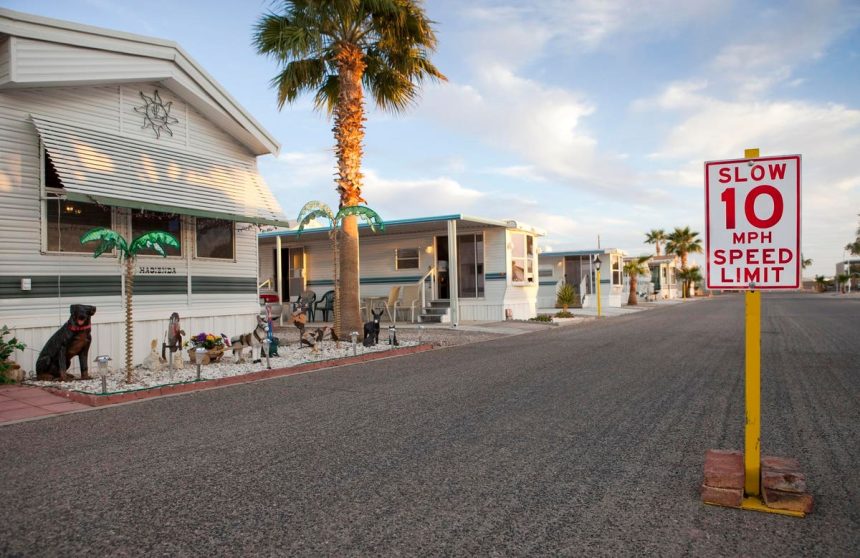Chief Executive Officer at Keel Team Mobile Home Park Investments, overseeing the company’s acquisitions and investor relations.
As the CEO of a mobile home park investment company, I’ve spent years in the manufactured housing space, and I think mobile home parks are one of the last hidden gems in commercial real estate. But it won’t remain a secret for much longer.
I’m seeing more institutional buyers investing in manufactured housing. Nevertheless, private investors still have an opportunity to capitalize on the potential rewards mobile home park investing has to provide. The key is to keep a few best practices in mind and prepare for some challenges along the way.
Potential Benefits Of Mobile Home Park Investing
1. Withstands many economic environments: Manufactured housing is among the most affordable housing options available in the U.S. In my experience, during periods of economic downturn, the demand for affordable housing can create a flood of inquiries for mobile home park owners. Moreover, I’ve found that existing tenants often prefer to stay in place rather than pay the costs of relocation. These factors combine to give mobile home parks the potential to be a steady commercial real estate investment.
2. Shrinking supply and growing demand: Many residents of mobile home parks are being forced to leave due to older mobile home parks being razed. At the same time, the affordable housing crisis continues across the country. As a result, many homeowners are looking for more affordable housing options.
3. Opportunity for consistent cash flows: In my experience, the stable tenant base and low maintenance costs often associated with a mobile home park have the potential to provide investors with a consistent cash flow.
4. Multiple income streams: Investors can also boost profitability by providing revenue-generating amenities beyond lot rents, such as on-site laundry, storage units, vending machines or RV and boat parking areas. These multiple income streams could help mitigate risk and increase financial stability and possible returns.
5. Lower maintenance costs: When acquiring a mobile home community with tenant-owned homes, you purchase a parcel of land and its infrastructure. If managed correctly, this can make mobile home parks an attractive choice for those seeking a lower maintenance and cost-effective investment.
6. Tax benefits: Mobile home parks are capable of providing certain tax advantages to investors, such as depreciating infrastructure and improvements.
7. Consistent tenant base: Mobile home parks also tend to have a stable tenant base. I’ve found this is often for two reasons: First, some homeowners downsize as they age, but manufactured homeowners are already at the lower end of the downsizing spectrum; second, the cost of relocating a mobile home can be quite high, with the average cost being about $9,000 in 2023, according to Forbes. So, I’ve observed that tenants tend to choose to remain in a well-maintained mobile home park, even in the face of modest rent increases.
8. Shared responsibility: In tenant-owned home mobile home parks, owners are responsible for the land and infrastructure, while tenants are theoretically responsible for their homes. Since the tenants are homeowners, they should be vested in caring for and maintaining their manufactured homes. This creates a potential joint stakeholder scenario that is not typically found when renting other real estate types.
9. Flexible financing options: When it comes to financing mobile home parks, the benefits are twofold. Park owners might be receptive to owner financing arrangements due to the potential benefits and steady monthly income it can provide. At the same time, as more prominent players enter the industry, I’m seeing that financing from large banks is becoming increasingly accessible.
10. Lower competition: I’ve found there simply isn’t as much competition in the mobile home space as other types of real estate investments. However, competition is bound to increase as larger companies catch on.
Risks To Consider
Of course, it’s also important to consider some of the risks that can come with a new real estate investment. I think the biggest risks associated with mobile home parks include:
• Buying in a market that loses a sole large employer.
• Dealing with older utility infrastructures (many mobile home parks are more than 50 years old).
• Hiring a property management company that can’t handle the increased volume of low-income tenants.
These risks can be mostly managed with thorough due diligence ahead of your purchase. This is where experience and a proven track record can save you big time.
Getting Started Successfully
The first step I took when looking to invest in this asset class was taking a course that taught me most of what I needed to know to buy my first mobile home park. I recommend exploring your options and doing something similar if you are new to this type of investment.
You should also ask yourself some additional questions when considering a mobile home park investment, including:
• Do I want to invest actively (buy your own park) or passively (with an experienced operator)?
• Am I comfortable buying a property far away from where I live, or do I want something within driving distance?
• Do I have the time to commit to the due diligence and managing a mobile home park would require? (I believe the best operators are very hands-on.)
• Do I have the stomach to evict low-income tenants if it comes to it?
• Can my portfolio handle investing in an illiquid asset for an extended period of time?
I think mobile home parks have the potential to be a smart investment opportunity, and they don’t receive the credit they deserve. If you’re an investor on the fence about mobile home parks, it could be wise to do your research and consider whether getting involved is the right choice for you.
The information provided here is not investment, tax, or financial advice. You should consult with a licensed professional for advice concerning your specific situation.
Forbes Business Council is the foremost growth and networking organization for business owners and leaders. Do I qualify?
Read the full article here










